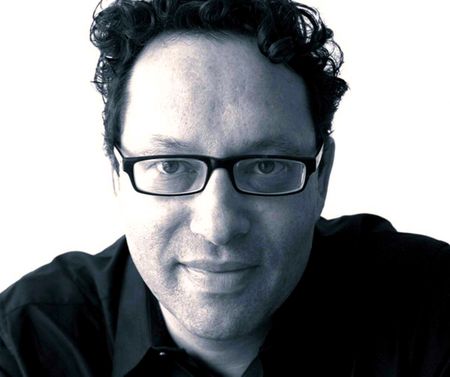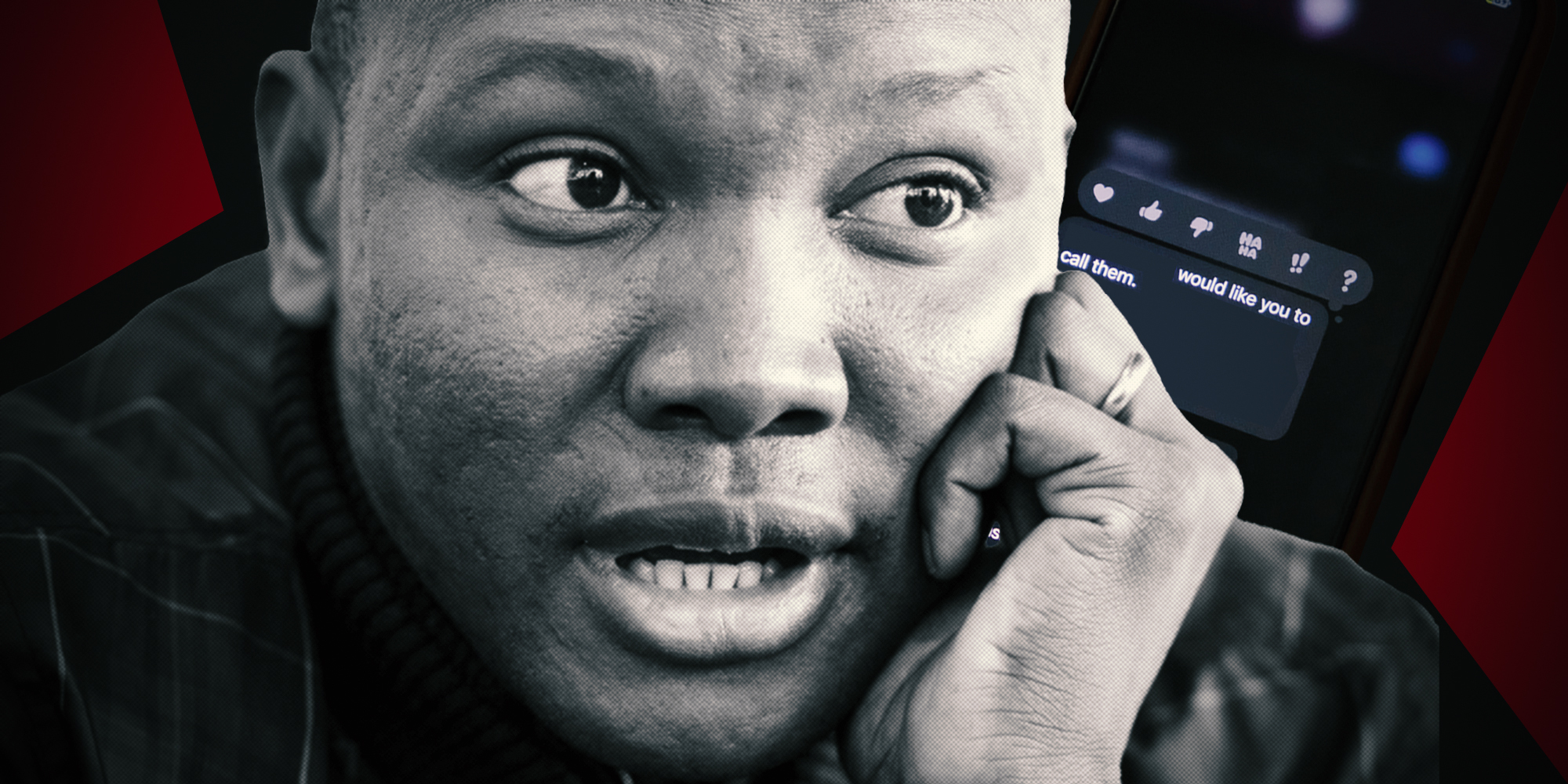If Nkosana Makate invented the Please Call Me service, the subject of the ongoing 15-year-old court case between him and cellphone company Vodacom, where is his patent? Or even his application for one?
The only patent application was submitted by former MTN engineer Ari Kahn and filed with the Patent Office on 22 January 2001. His patent was awarded the same day. Kahn briefed MTN’s legal representatives on 16 November 2000, having conceived of the idea the day before.
While Makate was a trainee accountant at Vodacom, Kahn was already developing highly technical solutions as lead data consultant at MTN from 1994 to 2002. He worked on a range of cutting-edge ideas for the then-nascent mobile industry, including a website that allowed anyone to send free SMSes to mobile numbers. In short, Kahn had the technical know-how to solve the then-complex technology problem.
Read more in Daily Maverick: R47-million not enough – Vodacom left seething after court orders a bigger payment to Please Call Me inventor
This month the Supreme Court of Appeal (SCA) ordered Vodacom to pay Makate between R29-billion and R55-billion for an idea he said he conceived of. This is significantly higher than what the Constitutional Court previously ordered in the long-running Please Call Me (PCM) saga. The apex court stipulated that Vodacom CEO Shameel Joosub had the final say in what Makate should be paid and offered R47-million.
But the SCA judgement reads that Makate “is entitled to be paid 5% – 7.5% of the total revenue of the PCM product from March 2001 to date of judgment …. together with the mora interest thereon”. No lower court should overrule the Constitutional Court, which appears to be the case in this drawn-out dispute.
With a market cap of R200-billion, the lower R29-billion figure represents nearly two years of Vodacom’s annual dividend payouts of around R13-billion to R14-billion, according to the network’s figures. It is a staggering amount for a concept that has no patent behind it.
Origin stories
Kahn came up with the idea, he told me in an email in 2019, when he was dealing with his own frustrations at the time. He said he was getting as many as 40 voicemails a day, mostly from people who left him a message to “call me”.
Kahn is a legendary figure in the mobile industry in South Africa. He worked on “three world firsts,” he told me. “Callme”, as he first named it, was the third of these and he had the idea on 15 November 2000.
The dates are important here. Kahn patented it — through MTN’s lawyers Spoor and Fisher on 22 January 2001 — as a “method and system for sending a message to a recipient”.
The next day the service was launched, about which Kahn jokes that he “injects Callme virus into MTN”.
Two days later, on 25 January, “Callme skyrockets to 1.5m messages,” he added.
It was a runaway success and is now as essential a part of the South African cellular landscape — which allowed someone to send a free SMS (which back then cost R0.25) and for the receiver to then make a call.
“In the first month, Callme reached market saturation,” Kahn told me. “Growing at an astronomical rate of ‘hundreds of thousands of new users a day’, Callme was the fastest service adoption ever recorded in the history of telecoms and Internet, then and to this day.”
Makate would not directly address Kahn’s patents. “Mr Kahn was, according to Vodacom, lined up as a witness during trial in 2013. Vodacom, after CEO at the time, Alan Knott-Craig[’s] testimony decided not to call him,” Makate told me via WhatsApp this month.
“Frankly he could have become a friend of the court if he wanted to. Alan Knott-Craig, the ‘inventor’ according to Vodacom[’s] position in court, said Vodacom was FIRST and that the MTN product was clumsy. I think he is a person you would also like to talk to because this was said in his testimony in court.”
He added: “That is all I can say [to] you.”
When pressed on whether he had filed a patent, Makate refused to directly answer multiple questions. “Surely only Vodacom knows why they ultimately decided not to call Mr Kahn as their witness as promised in court; this Vodacom can answer. Mr Kahn himself can answer why he did not become a friend of the court even if Vodacom decided not to call him,” Makate wrote.
When asked again about a patent, he replied: “I have said what I need to say. I will not enter into a public spat with Mr Kahn. He had an opportunity to come to court in 2013 as a friend of the court and as a witness that Vodacom promised the court.”
Leaked
Kahn thinks the idea was leaked after he briefed MTN’s legal representatives on 16 November 2000. Five days later, on 21 November 2000, Makate sent his “buzzing option” memo to his boss Lazarus Muchenje, according to Vodacom's own records.
Muchenje referred him to then director of product development Philip Geissler, who later concluded a verbal agreement that Makate would 15% cut of any revenue from the concept. Vodacom has since argued that Geissler, then also on the operator’s board, was not empowered to make such a deal.
Kahn and MTN were granted the patent by the Patent Office on 22 January 2001 and MTN sent its first Please Call Me text the next day, on 23 January 2001.
Three weeks later, on 9 February 2001, Vodacom announced its launch of the “Call Me” service, which it described as a “world first” and credited Makate with the idea, according to the operator. It only sent the first message the next day, on 10 February 2001.
That is 13 weeks after Kahn briefed Spoor and Fisher; and three weeks after the patent was granted and MTN sent its first Please Call Me SMS. That clearly does not qualify as a “world first”.
Vodacom said it will appeal the SCA’s 6 February judgment. “Vodacom is surprised and disappointed with the judgment and will bring an application for leave to appeal before the Constitutional Court of South Africa within the prescribed period,” a spokesperson said.
Disputed origins
Vodacom’s key legal mistake appears to have been an unwillingness to acknowledge that the Please Call Me idea wasn't its own. This is unsurprising given the fierceness of competition between the two operators at the time – and the egos involved.
Founding Group CEO Allan Knott-Craig even claimed in his autobiography Second is Nothing that he came up with the idea himself, while watching two security guards without airtime trying to make a call. He later admitted during his 2013 court testimony that he had not invented it.
The operator boasted in its internal magazine in 2001 that the new “call me” product was “thanks to Kenneth Makate from our finance department. Kenneth suggested the service to the product development team, which immediately took up the idea… ‘Call me’ has been a big success”.
This hubris – and failure to acknowledge MTN had beaten it to market with Kahn’s patented idea – has come back to haunt Vodacom’s new management.
Vodacom admitted as much to the Sunday Times in 2019 that “It had already been invented and subsequently patented by MTN. In fact, MTN launched its version, called Call Me, the month before Vodacom did”.
But Vodacom never presented this as part of its legal defence and as such was never before any of the courts that ruled on the dispute. Once the Constitutional Court ruled that Makate had invented it, however factually untrue, this is all moot.
Kahn contention that the idea was leaked when he briefed Spoor & Fisher has been mentioned to me by numerous other telecoms executives at both MTN and Vodacom. This fits the timeline, with Makate’s memo coming six days after Kahn’s briefing.
An MTN executive, who asked to remain anonymous, explained to me that the cellular operator, now the biggest in Africa, “chose not to defend it because it looks like two big companies fighting”.
“At the time our lawyers said we had a strong case to make but intellectual property law tends to move on a dime. One technical error, one spelling mistake, and the whole thing gets drawn into questions,” the executive continued. “At the time the view was this is not a product that is not going to make money. It was meant to be a product to help the poor.”
Of Vodacom’s clumsy claim to have developed the idea itself, the executive added: “When you are in a hole, stop digging”. DM





 Illustrative image | Nkosana Makate; a phone receiving the Please Call me SMS. (Photo: Gallo Images / City Press / Leon Sadiki | Kyra Wilkinson)
Illustrative image | Nkosana Makate; a phone receiving the Please Call me SMS. (Photo: Gallo Images / City Press / Leon Sadiki | Kyra Wilkinson)